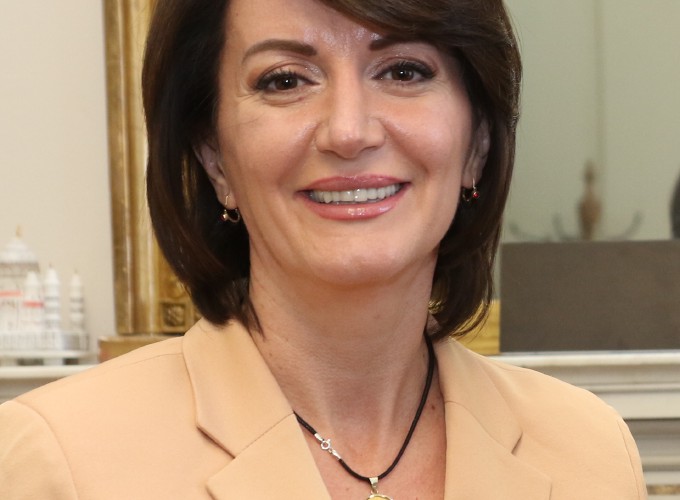Blog post published by presidential-power.com
Three months after a snap parliamentary election was held in Kosovo on 8 June, the country’s parliament has not started to work and a new government is yet to be formed. Meanwhile, the Constitutional Court has been called upon twice to rule over who should be nominated as prime minister and what is the correct procedure for the election of the speaker of parliament.
A previous post explained how government formation became a difficult constitutional matter in the aftermath of the general election.
Atifete Jahjaga, the non-partisan head of state elected by the parliament with cross-party support in 2011, had to decide whether to nominate outgoing prime minister Hashim Thaci of the Democratic Party of Kosovo (PDK), which topped the polls and held 37 seats in the 120-seat parliament; or to nominate Ramush Haradinaj of the opposition Alliance for Future of Kosovo (AAK), which signed a post-election coalition agreement with the Democratic League of Kosovo (LDK) and the newly established Initiative for Kosovo (Nisma), and claimed to have secured the support of the parliamentary majority. She asked the Constitutional Court to clarify the president’s role in government formation on 19 June.
The Court decided in favour of the PDK nomination. In its 1 July ruling, the Court argued that the president should nominate for prime minister the candidate proposed by the political party or coalition that was registered in the general election under one name and obtained the highest number of seats in the assembly. Thus, the Court specifically ruled out the possibility of nominating as prime minister a candidate put forward by a post-election coalition and opened the way for Hashim Thaci’s third appointment as prime minister.
In the meantime, the battle between the ruling PDK and the anti-Thaci coalition moved on to the election of the speaker of parliament. Under Article 67.2, “the president of the assembly is proposed by the largest parliamentary group and is elected by a majority vote of all deputies”. While PDK holds 37 seats in the new parliament, the opposition LDK, AAK and Incentive for Kosovo control 47 seats. To ensure that they will be able to propose the speaker of the parliament, the three parties formed a joint parliamentary group on 11 July. However, PDK still argued that the right to nominate the speaker of parliament belongs to the party that won the most votes in the election.
In accordance with Article 66.3, President Jahjaga decided that the parliament should convene on July 17. Following the parliament’s constitutive session and the election of the new leadership, she was also supposed to appoint the new prime minister.
However, things took a different turn. The chair of the first parliamentary session held on 17 July refused to recognize the LDK-AAK-NISMA group. The argument was that parliamentary groups could only be formed after the election of the president and deputy presidents of the assembly. As a result, the opposition parties boycotted the session and left the room when PDK’s proposal for the speaker of parliament was put to vote. In the absence of quorum, the meeting was suspended. However, the opposition returned later on and elected Ifa Mustafa, LDK’s proposal, as President of the Assembly in the absence of PDK. Naturally, PDK contested the election and asked the Court to rule on its constitutionality. President Jahjaga also decided to wait for the Court’s verdict before appointing the prime minister.
In its 22 August ruling, the Court found the election of speaker unconstitutional both procedurally and substantially. On the first ground, the meeting called after the adjournment of the Constitutive Session due to lack of quorum was declared illegal. On the second ground, the Court referred to its previous decision regarding the parties entitled to be consulted first about the appointment of the prime minister. The final ruling was that the Constitution prioritizes election results as a criterion for recognizing the largest party or coalition in the new assembly with the right to nominate the next speaker of parliament.
The constitutive session of the Assembly will be resumed on 12 September. Both the opposition and the ruling PDK are claiming the post of the speaker of parliament and are hoping to form the government. The opposition parties have announced that Self-determination will vote against the PDK nominees and are expecting to elect Ifa Mustafa as president of the assembly once again. The ruling party is counting on the support of the ethnic minorities, who do not want new elections to be called.
President Jahjaga is likely to play an important role in this context. Provided that all four opposition parties vote against Thaci, whom the president is expected to appoint as prime minister first, she will need to make a second nomination within ten days. The Constitution is however silent on whether the president should appoint a second candidate from the same party or not. Nevertheless, if the government fails to win majority support for the second time, the president needs to announce new elections, which should be held within the next forty days (under Article 95.4). In its first ruling, the Constitutional Court acknowledged that the president has full discretion in making the second nomination. In a more peculiar fashion, though, the Court also underlined that the president’s main responsibility is to find a solution that avoids new elections.


